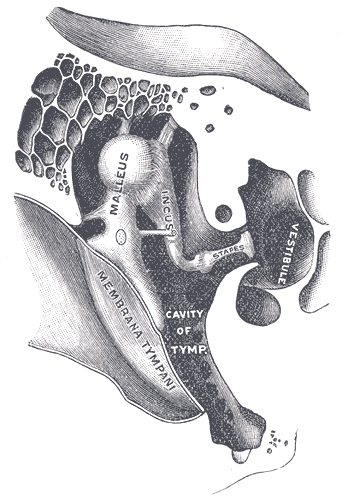|
Global Audiology
Global Audiology is an open access platform designed to enhance understanding of audiology education and practice worldwide. Despite the global and individual burden of hearing disorders the World Health Organization (WHO) reported a substantial gap between the need and access to hearing care services, particularly in low- and middle-income countries. Among several audiological services that can be provided, it is estimated that only 17% of those who can benefit from a hearing aid have access to one. The WHO report emphasizes the importance of integrating ear and hearing care into national health plans to achieve universal health care coverage. Lack of information among those who need audiology care exacerbates the poor availability of services. Global Audiology goals include facilitating networking among hearing health providers and users, and promoting the development of audiology services in resource-limited settings. By developing knowledge about current practice trends, the i ... [...More Info...] [...Related Items...] OR: [Wikipedia] [Google] [Baidu] |
Open Access
Open access (OA) is a set of principles and a range of practices through which research outputs are distributed online, free of access charges or other barriers. With open access strictly defined (according to the 2001 definition), or libre open access, barriers to copying or reuse are also reduced or removed by applying an open license for copyright. The main focus of the open access movement is "peer reviewed research literature". Historically, this has centered mainly on print-based academic journals. Whereas non-open access journals cover publishing costs through access tolls such as subscriptions, site licenses or pay-per-view charges, open-access journals are characterised by funding models which do not require the reader to pay to read the journal's contents, relying instead on author fees or on public funding, subsidies and sponsorships. Open access can be applied to all forms of published research output, including peer-reviewed and non peer-reviewed academic journal ... [...More Info...] [...Related Items...] OR: [Wikipedia] [Google] [Baidu] |
Audiology
Audiology (from Latin , "to hear"; and from Greek , '' -logia'') is a branch of science that studies hearing, balance, and related disorders. Audiologists treat those with hearing loss and proactively prevent related damage. By employing various testing strategies (e.g. behavioral hearing tests, otoacoustic emission measurements, and electrophysiologic tests), audiologists aim to determine whether someone has normal sensitivity to sounds. If hearing loss is identified, audiologists determine which portions of hearing (high, middle, or low frequencies) are affected, to what degree (severity of loss), and where the lesion causing the hearing loss is found ( outer ear, middle ear, inner ear, auditory nerve and/or central nervous system). If an audiologist determines that a hearing loss or vestibular abnormality is present, they will provide recommendations for interventions or rehabilitation (e.g. hearing aids, cochlear implants, appropriate medical referrals). In addition t ... [...More Info...] [...Related Items...] OR: [Wikipedia] [Google] [Baidu] |
World Health Organization
The World Health Organization (WHO) is a specialized agency of the United Nations responsible for international public health. The WHO Constitution states its main objective as "the attainment by all peoples of the highest possible level of health". Headquartered in Geneva, Switzerland, it has six regional offices and 150 field offices worldwide. The WHO was established on 7 April 1948. The first meeting of the World Health Assembly (WHA), the agency's governing body, took place on 24 July of that year. The WHO incorporated the assets, personnel, and duties of the League of Nations' Health Organization and the , including the International Classification of Diseases (ICD). Its work began in earnest in 1951 after a significant infusion of financial and technical resources. The WHO's mandate seeks and includes: working worldwide to promote health, keeping the world safe, and serve the vulnerable. It advocates that a billion more people should have: universal health care ... [...More Info...] [...Related Items...] OR: [Wikipedia] [Google] [Baidu] |
Universal Health Care
Universal health care (also called universal health coverage, universal coverage, or universal care) is a health care system in which all residents of a particular country or region are assured access to health care. It is generally organized around providing either all residents or only those who cannot afford on their own, with either health services or the means to acquire them, with the end goal of improving health outcomes. Universal healthcare does not imply coverage for all cases and for all people – only that all people have access to healthcare when and where needed without financial hardship. Some universal healthcare systems are government-funded, while others are based on a requirement that all citizens purchase private health insurance. Universal healthcare can be determined by three critical dimensions: who is covered, what services are covered, and how much of the cost is covered. It is described by the World Health Organization as a situation where citizens can ... [...More Info...] [...Related Items...] OR: [Wikipedia] [Google] [Baidu] |
International Society Of Audiology
The International Society of Audiology (ISA) was founded in 1952 to "facilitate the knowledge, protection and rehabilitation of human hearing" and to "serve as an advocate for the profession and for the hearing impaired throughout the world". It serves as the professional association for those who work in audiology and related fields of knowledge, from all over the world. The ISA is constituted as a corporate body by Article 60 et seq, of the Swiss Civil Code, registered in the Swiss register du Commerce de Genève. The ISA strives to promote interactions among societies, associations and organizations that have similar missions. It works towards this goal by focusing on three main activities: * organizing a biannuaworld congresses* publishing the scientific peer-reviewed ''International Journal of Audiology'' and * supporting the World Health Organization by advancing the interests of those working in audiology or related fields, the hearing impaired and deaf community. Affil ... [...More Info...] [...Related Items...] OR: [Wikipedia] [Google] [Baidu] |
Website
A website (also written as a web site) is a collection of web pages and related content that is identified by a common domain name and published on at least one web server. Examples of notable websites are Google, Facebook, Amazon, and Wikipedia. All publicly accessible websites collectively constitute the World Wide Web. There are also private websites that can only be accessed on a private network, such as a company's internal website for its employees. Websites are typically dedicated to a particular topic or purpose, such as news, education, commerce, entertainment or social networking. Hyperlinking between web pages guides the navigation of the site, which often starts with a home page. Users can access websites on a range of devices, including desktops, laptops, tablets, and smartphones. The app used on these devices is called a Web browser. History The World Wide Web (WWW) was created in 1989 by the British CERN computer scientist Tim Berners-Lee. On 30 ... [...More Info...] [...Related Items...] OR: [Wikipedia] [Google] [Baidu] |
Audiology
Audiology (from Latin , "to hear"; and from Greek , '' -logia'') is a branch of science that studies hearing, balance, and related disorders. Audiologists treat those with hearing loss and proactively prevent related damage. By employing various testing strategies (e.g. behavioral hearing tests, otoacoustic emission measurements, and electrophysiologic tests), audiologists aim to determine whether someone has normal sensitivity to sounds. If hearing loss is identified, audiologists determine which portions of hearing (high, middle, or low frequencies) are affected, to what degree (severity of loss), and where the lesion causing the hearing loss is found ( outer ear, middle ear, inner ear, auditory nerve and/or central nervous system). If an audiologist determines that a hearing loss or vestibular abnormality is present, they will provide recommendations for interventions or rehabilitation (e.g. hearing aids, cochlear implants, appropriate medical referrals). In addition t ... [...More Info...] [...Related Items...] OR: [Wikipedia] [Google] [Baidu] |
Computational Audiology
Computational audiology is a branch of audiology that employs techniques from mathematics and computer science to improve clinical treatments and scientific understanding of the auditory system. Computational audiology is closely related to computational medicine, which uses quantitative models to develop improved methods for general disease diagnosis and treatment. Overview In contrast to traditional methods in audiology and hearing science research, computational audiology emphasizes predictive modeling and large-scale analytics (" big data") rather than inferential statistics and small-cohort hypothesis testing. The aim of computational audiology is to translate advances in hearing science, data science, information technology, and machine learning to clinical audiological care. Research to understand hearing function and auditory processing in humans as well as relevant animal species represents translatable work that supports this aim. Research and development to implement mor ... [...More Info...] [...Related Items...] OR: [Wikipedia] [Google] [Baidu] |
Hearing
Hearing, or auditory perception, is the ability to perceive sounds through an organ, such as an ear, by detecting vibrations as periodic changes in the pressure of a surrounding medium. The academic field concerned with hearing is auditory science. Sound may be heard through solid, liquid, or gaseous matter. It is one of the traditional five senses. Partial or total inability to hear is called hearing loss. In humans and other vertebrates, hearing is performed primarily by the auditory system: mechanical waves, known as vibrations, are detected by the ear and transduced into nerve impulses that are perceived by the brain (primarily in the temporal lobe). Like touch, audition requires sensitivity to the movement of molecules in the world outside the organism. Both hearing and touch are types of mechanosensation. Hearing mechanism There are three main components of the human auditory system: the outer ear, the middle ear, and the inner ear. Outer ear The ou ... [...More Info...] [...Related Items...] OR: [Wikipedia] [Google] [Baidu] |
Sound
In physics, sound is a vibration that propagates as an acoustic wave, through a transmission medium such as a gas, liquid or solid. In human physiology and psychology, sound is the ''reception'' of such waves and their ''perception'' by the brain. Only acoustic waves that have frequencies lying between about 20 Hz and 20 kHz, the audio frequency range, elicit an auditory percept in humans. In air at atmospheric pressure, these represent sound waves with wavelengths of to . Sound waves above 20 kHz are known as ultrasound and are not audible to humans. Sound waves below 20 Hz are known as infrasound. Different animal species have varying hearing ranges. Acoustics Acoustics is the interdisciplinary science that deals with the study of mechanical waves in gasses, liquids, and solids including vibration, sound, ultrasound, and infrasound. A scientist who works in the field of acoustics is an ''acoustician'', while someone working in the field of ... [...More Info...] [...Related Items...] OR: [Wikipedia] [Google] [Baidu] |
Audiology And Hearing Health Professionals
Audiology (from Latin , "to hear"; and from Greek , ''-logia'') is a branch of science that studies hearing, balance, and related disorders. Audiologists treat those with hearing loss and proactively prevent related damage. By employing various testing strategies (e.g. behavioral hearing tests, otoacoustic emission measurements, and electrophysiologic tests), audiologists aim to determine whether someone has normal sensitivity to sounds. If hearing loss is identified, audiologists determine which portions of hearing (high, middle, or low frequencies) are affected, to what degree (severity of loss), and where the lesion causing the hearing loss is found (outer ear, middle ear, inner ear, auditory nerve and/or central nervous system). If an audiologist determines that a hearing loss or vestibular abnormality is present, they will provide recommendations for interventions or rehabilitation (e.g. hearing aids, cochlear implants, appropriate medical referrals). In addition to diagnos ... [...More Info...] [...Related Items...] OR: [Wikipedia] [Google] [Baidu] |






